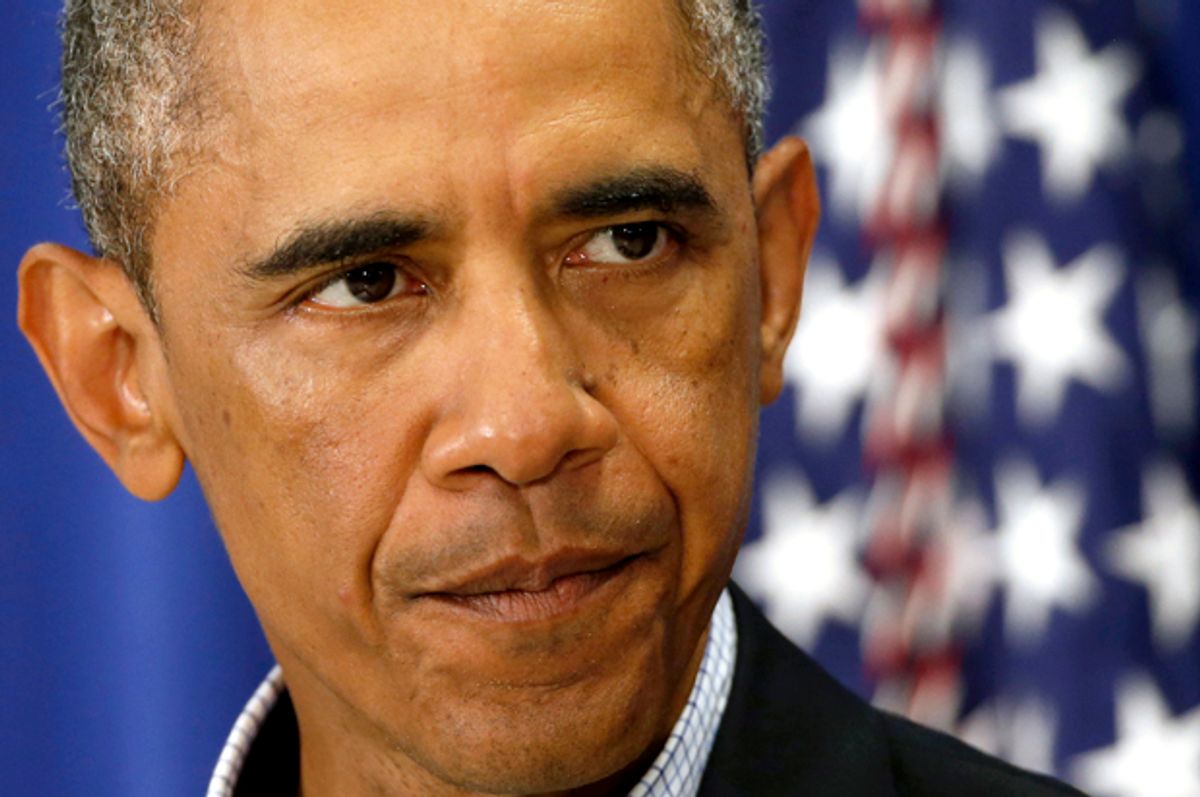An upbeat President Obama refused to publicly sulk over the results of Tuesday's Democratic drubbing in a post-election press conference today, vowing to "get the job done" on key issues and identifying areas where he foresaw potential agreements with a Congress that will soon be under unified GOP control.
Republicans are likely to score eight Senate pickups by the time the 2014 election season concludes with Louisiana's Senate runoff next month, and the GOP is poised to enter the 114th Congress with its largest majority in seven decades. Obama acknowledged the significance of last night's vote.
"The American people sent a message they've sent for several elections now," the president said, adding that Americans "want us to get the job done" on crucial challenges confronting the country.
"To everyone who voted," Obama said, "I hear you. To the two thirds of voters who chose not to participate yesterday, I hear you too."
Charting a centrist policy course, the president outlined three areas where he hoped to reach agreement with incoming Senate Majority Leader Mitch McConnell and House Speaker John Boehner.
The two parties agree on the "need to create more jobs that pay well," the president said, citing infrastructure investments as a prime opportunity to create jobs. Obama is likely to find himself disappointed on the issue, however; since the GOP took over the House in 2010, congressional Republicans have slashed spending on infrastructure projects, in keeping with an ideology that casts suspicion on government spending programs.
Second, Obama said, the two parties could find common ground on "tax reform that closes loopholes," which would allow for a lowering of corporate tax rates. Tax reform has long been a policy priority of many Beltway types, but previous bipartisan efforts to achieve it have made little headway.
Finally, the president called for cooperation on international trade agreements. He's more likely to meet success here. Progressives within the president's own party have been the fiercest critics of free trade agreements, citing inadequate labor and environmental standards and corporate giveaways contained in the agreements. Republicans, meanwhile, are largely amenable to free trade.
Even as he promised to work with Republicans on those issues, however, Obama reserved the right to use his executive authority on certain aspects of immigration reform. The Senate passed a comprehensive immigration reform bill last year, but the legislation never came to a House vote. On Wednesday, Obama said he held out hope that Congress could still pass a bill, but his references to executive action suggest he doesn't see such a scenario as likely.
Notably, Obama also announced that he will soon ask Congress to authorize American air strikes against the Islamic State militant group; a chorus of bipartisan critics had decried the administration's decision this year to launch the strikes without seeking congressional approval. The president reaffirmed that the U.S. was engaged in the struggle against the Islamic state for "the long term."
The largely conciliatory theme Obama sounded in his Wednesday press conference echoed that conveyed by McConnell, who said in his re-election victory speech last night that "[j]ust because we have a two-party system doesn't mean we have to be in perpetual conflict." Given the crop of conservatives elected last night, however, "perpetual conflict" looks far more likely than a productive last two years of Obama's term. And to the extent that the next two years are productive, cooperation will likely occur on center-right policy priorities like free trade.



Shares